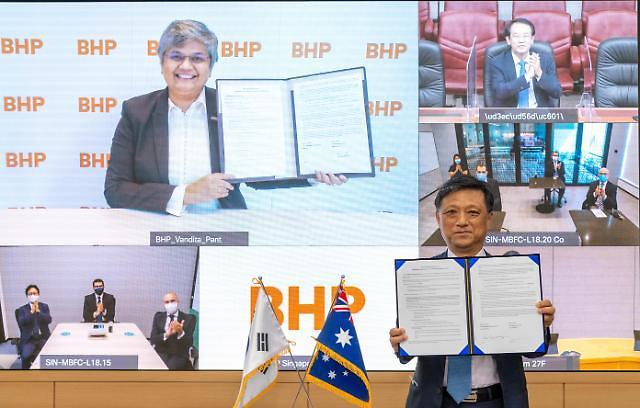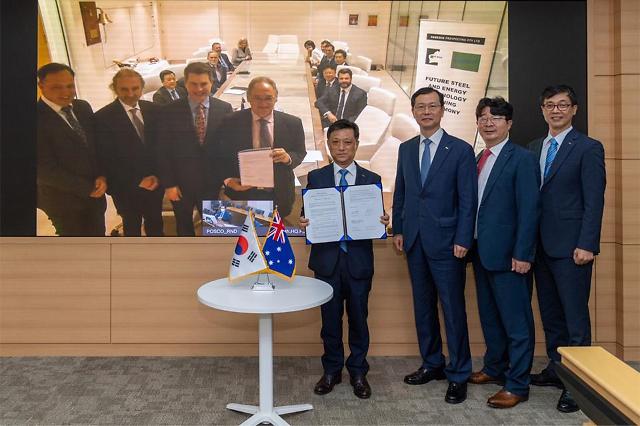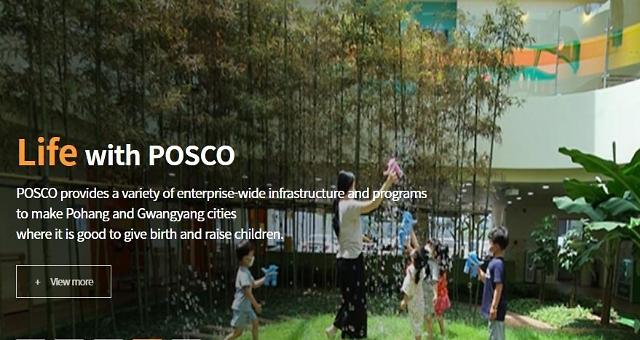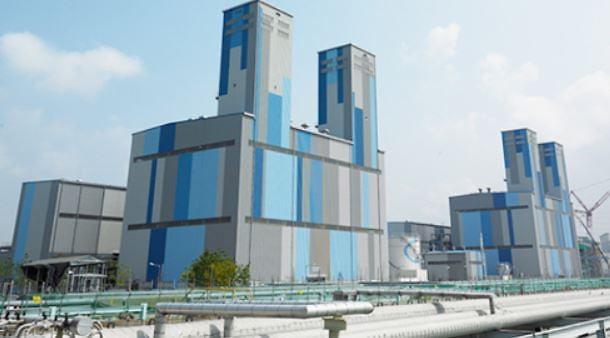
[Courtesy of POSCO]
SEOUL -- Australia's resources company BHP and South Korea's steel group POSCO agreed to establish a cooperative system for the reduction of carbon emissions, reduce coke consumption by using hydrogen, and conduct a joint study on utilizing eco-friendly biomass materials such as moss and seaweed as steel fuel.
Coke is an important industrial product, used mainly in iron ore smelting, but also as a fuel. Coke is used to remove oxygen from iron ore. BHP and POSCO would jointly develop a coke suitable for use with hydrogen. "We will be able to lay an important foundation for carbon neutrality throughout the steel value chain by utilizing POSCO's steel technology and BHP's mining expertise," POSCO's steel business head Kim Hak-dong said on October 17.
The two companies would accurately identify the possible amount of carbon emissions and develop carbon capture, utilization and storage (CCUS) technologies that provide the foundation for carbon removal or "negative emissions" when CO2 comes from bio-based processes or directly from the atmosphere.
Normally, furnaces use coal as a reducing agent to separate oxygen from iron ore. POSCO has unveiled a project to use hydrogen as a reducing agent in actual operation in 2027. The group aims to produce up to 500,000 tons of blue hydrogen by 2030 and complete a five-million-ton green hydrogen production system by 2050. Blue hydrogen is derived from natural gas with carbon capture technology while green hydrogen is produced from water using renewable power.
As part of efforts to decarbonize and reach net-zero carbon emissions by 2050, POSCO has forged a series of partnerships with raw material suppliers to explore technologies for decarbonization. In July, POSCO and Australia's Rio Tinto agreed to explore, develop and demonstrate technologies for their transition to a low-carbon emission steel value chain.
A month later, POSCO and Roy Hill Holdings agreed to develop an optimal hot briquetted iron (HBI) production system. HBI produces steel products after making reduced iron without carbon dioxide emissions by using hydrogen as a deoxidating agent. POSCO and Roy Hill would work on the development of technology to capture, utilize and store carbon that occurs during blue hydrogen production.
Copyright ⓒ Aju Press All rights reserved.




View more comments